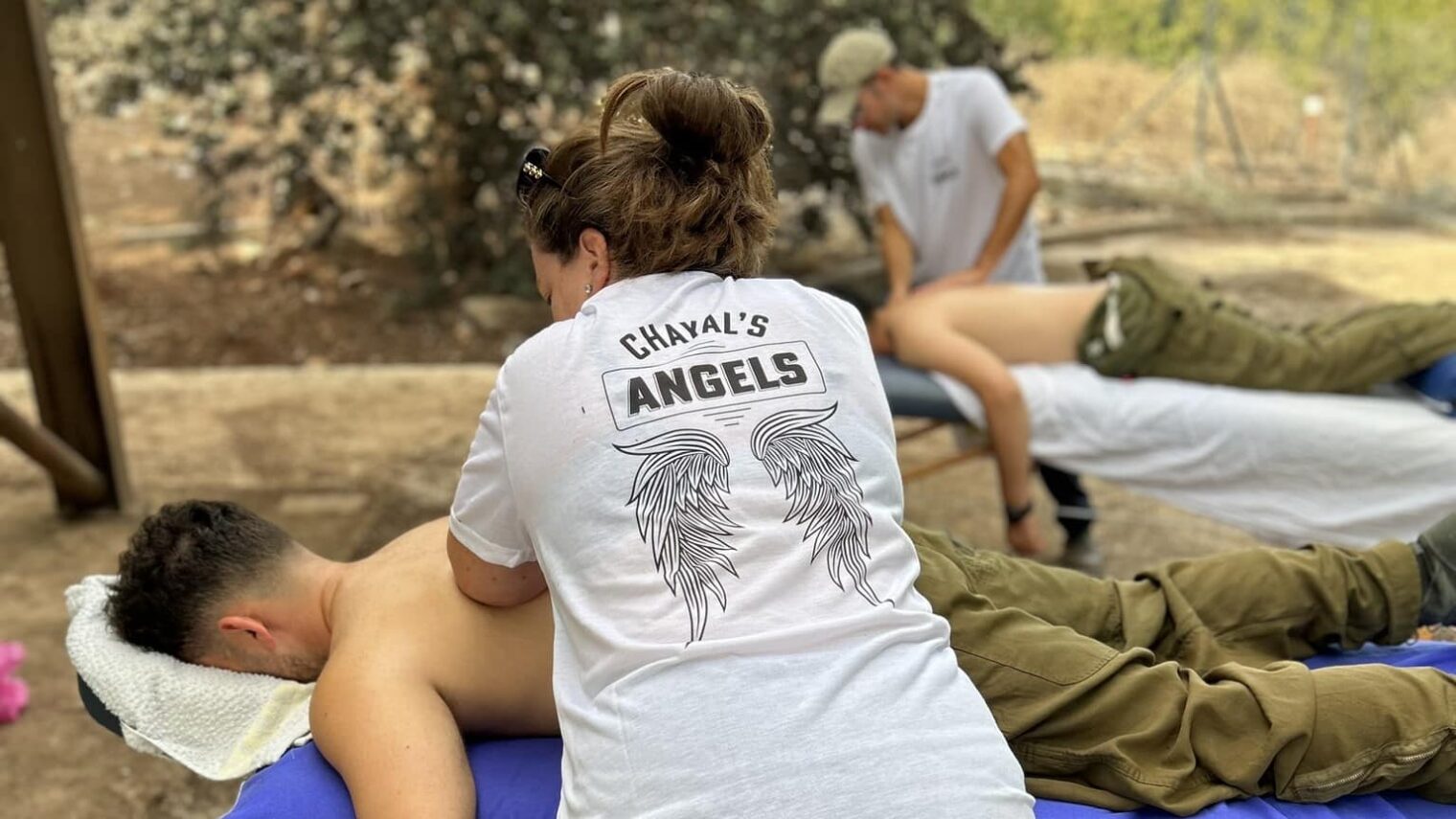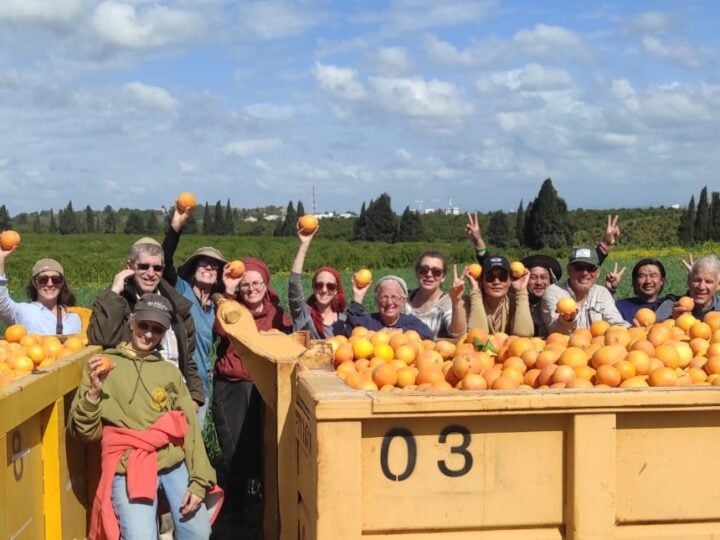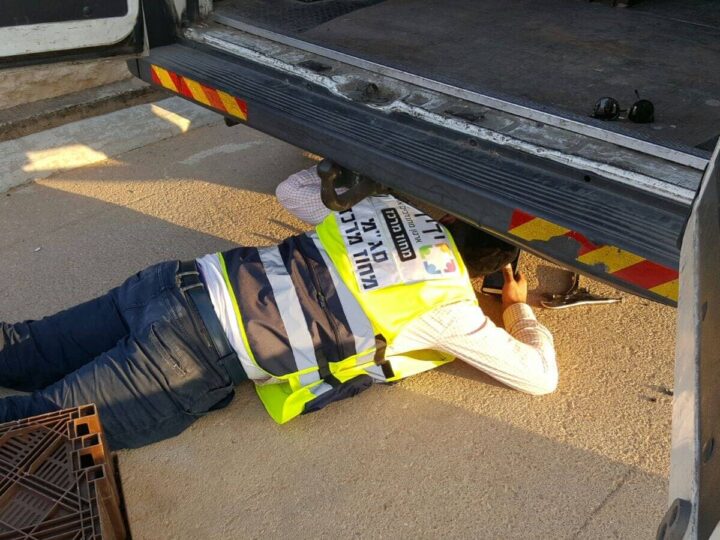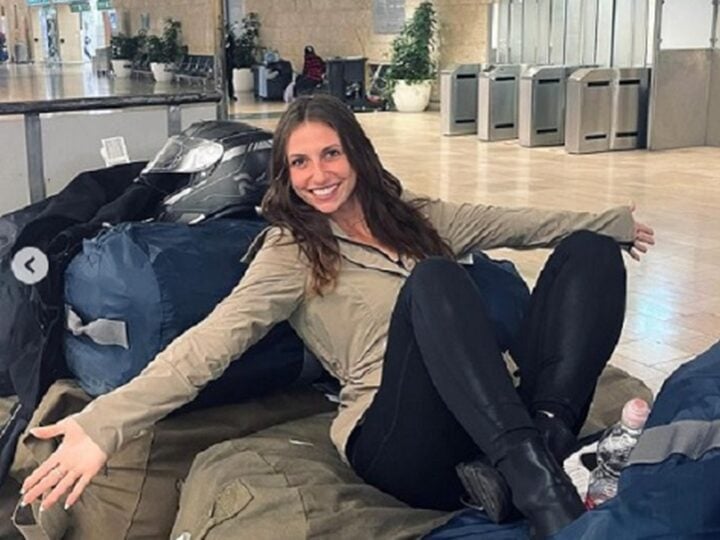The Hamas attacks on October 7 unleashed a tsunami of death and destruction on the Israeli people. But it also unleashed a tsunami of volunteering.
Several studies show that about half of Israeli citizens have been giving of their time since the war began, in addition to thousands of foreign volunteers.
Preparing meals for soldiers and displaced families; filling in for high-tech workers on reserve duty; donating blood and breastmilk; and harvesting produce on severely shorthanded farms, are among the needs volunteers are stepping up to fill.
Other volunteers are folding laundry at evacuee hotels, stocking supermarket shelves in the absence of regular workers; cleaning hospital rooms; babysitting for children of reserve soldiers; and giving haircuts and beauty treatments to evacuees.
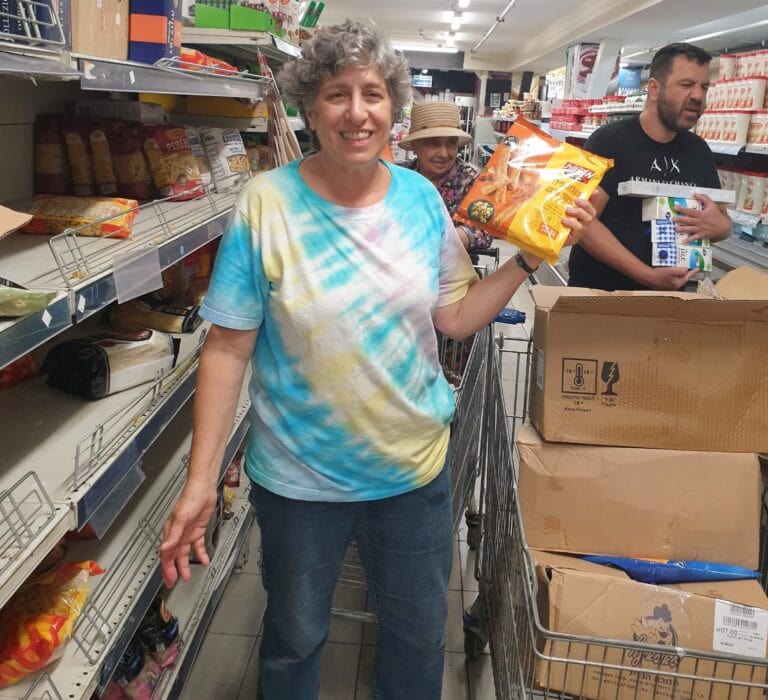
Here are additional unexpected ways that volunteers are supporting civilians and soldiers during these difficult days.
Vehicle rescuers
Thousands of evacuees had no way to retrieve their cars from their destroyed Gaza border communities, which are now closed military zones.
One resident of Kibbutz Nahal Oz contacted motor vehicle retailer Shlomo Group (Shlomo Sixt) asking for help.
In coordination with the IDF, the company recruited volunteer mechanics and logistics coordinators and made two trips to the dangerous region to extract a total of 65 intact vehicles (many cars were burned or demolished). Each operation involved 13 transport trucks and four SUVs.
Each rescued vehicle was thoroughly cleaned and checked out by a volunteer mechanic before it was returned to its owner.
On the run
Some of the Israelis who had to run from their homes in the first days of the war are now able to run toward positivity, thanks to Yael Goodman, founder of RUN JLM running tours.
With contributions from individual and business donors including Chanabana, Goodman procured and distributed running apparel and shoes, and organized runs through Jerusalem for dozens of evacuees sheltering in the capital city.
“With all their lives packed into one hotel room, running gives these evacuees a breath of fresh air, literally and figuratively. Others call it running; we call it therapy,” she said.
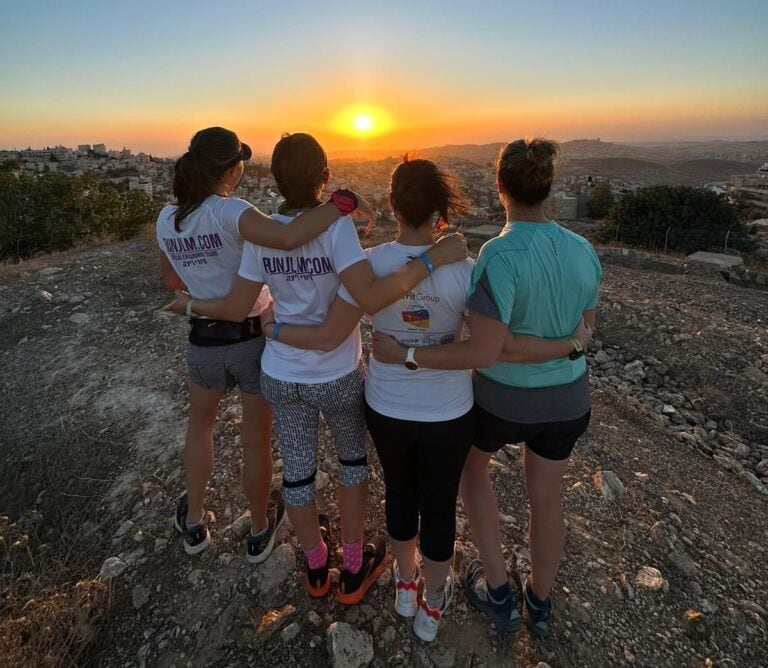
Donors can contribute to the project through an existing fund set up in memory of Goodman’s late brother.
Lending library
Literary critic Nurith Waisman partnered with the Arad Public Library to set up a free lending library for evacuees housed in Dead Sea hotels.
Located on the top floor of the Zim Dead Sea Mall, the library is staffed entirely by volunteers.
Waisman told The Times of Israel: “It’s incredible what’s going on here. People keep on donating books for children, teenagers and adults with so much love.”
Soulmate matcher
Israeli actress, comedian and social-media influencer Maya Wertheimer launched a “Singles in Uniform” campaign asking her half million Instagram followers to post pictures of unattached soldiers to help them find the love of their lives.
Wertheimer, wed to former Israeli consul-general to New York Asaf Zamir, has shared dozens of photos and short descriptions of soldiers, saying she wants to “make sure that no soldier goes lonely.”
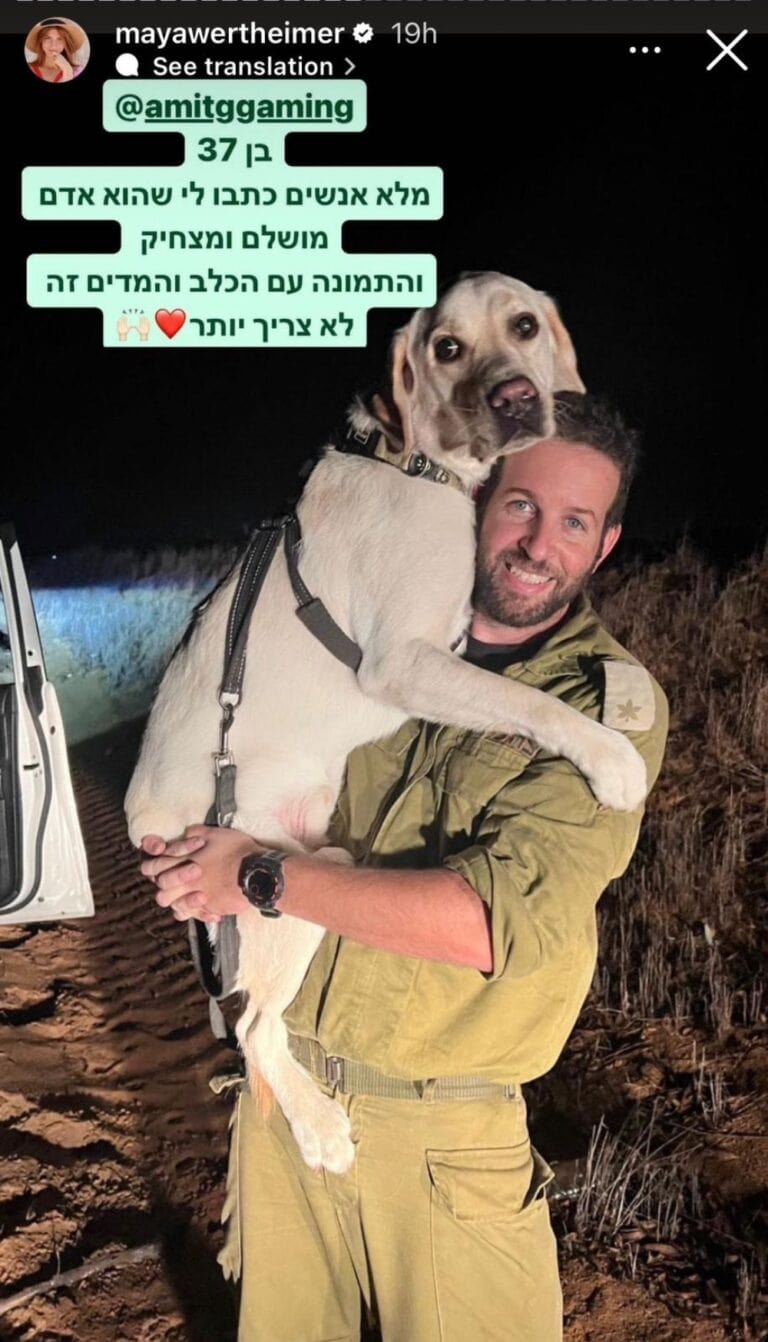
Wertheimer also visits wounded soldiers in hospitals, encouraging the single ones to let her help them find a partner with whom to build a family. “It gives you hope,” she said.
Traveling lavatory
Gabi Ohayon, owner of a framing shop in Rishon LeZion, wanted to do something practical to support the families of hostages abducted by Hamas.
Seeing that they were often holding rallies in public spaces, where it’s not easy to find a restroom, he rented a camper van and parked it wherever the families gathered.
The vehicle, covered with an Israeli flag and a banner of the hostages’ faces, has a bathroom as well as a couch and a coffee-making station.
Traveling laundromat
When you’re not home, how do you do your laundry?
Some of the hotels where evacuees are sheltering have installed washing machines and dryers for their use. There are also volunteers coming from near and far to help wash and fold laundry for these families.
Similarly, residents of communities near army encampments have been picking up soldiers’ laundry and bringing it back clean and folded. Rabbi Shai Graucher went so far as to haul washers and ironing boards to the bases.
Traveling seamstress
Upon learning that a duffel bag full of new size XL army uniforms sent by well-intentioned US donors had arrived at a southern army base, Ma’aleh Adumim friends Judy Slyper and Lisa Zenilman packed up two sewing machines and an iron, and headed down to alter the uniforms to fit the soldiers.
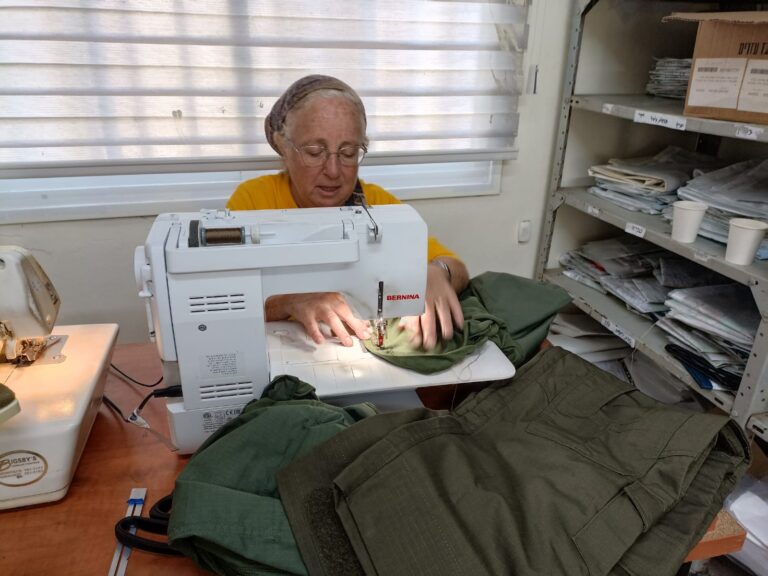
“They gave us a room with electrical outlets and a desk and table,” says Slyper. “I sewed and Lisa ironed. We finished a bunch of shirts and pants, and then some guys came in with requests. We hemmed pants and shirts, and fixed a backpack, belts and gloves.”
Traveling therapists
About 70 alternative medicine practitioners – acupuncturists, chiropractors, physiotherapists, massage therapists, and energy healers in northern Israel – have so far given free treatments to approximately 2,500 male and female soldiers, mostly reservists between 25 and 40 years old.
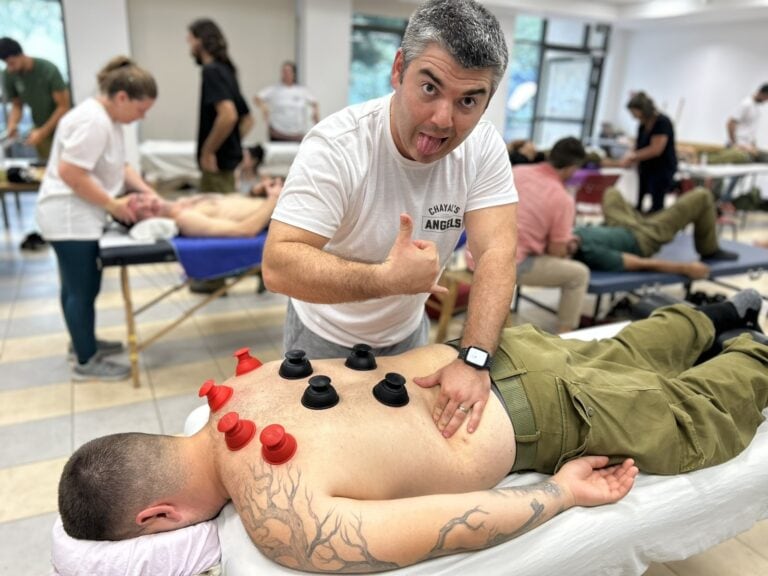
The group, dubbed Chayal’s Angels (chayal is Hebrew for “soldier”) have the stated mission of keeping the troops’ spirits high and physical pain low.
Tasha Cohen, an organizational business manager from Pardes Hanna, founded the initiative and coordinates the sessions in army tents or fields. She says the practitioners are warmly appreciated.
Cohen is soliciting contributions toward the cost of gasoline to drive the volunteer therapists to the bases. After the war, she hopes to open a center where soldiers could come after the war for free intensive treatment.
Ice cream delivery, gravedigging
JLIC Tel Aviv, a grassroots community of immigrants led by Rabbi Joe Wolfson and his wife, Corinne Shmuel, under the aegis of the Orthodox Union, has activated 700 volunteers for a wide range of projects since the start of the war.
“We have taken ice cream trucks to hotels where evacuees are housed, we have dug graves, and we have done everything in between,” says Wolfson. “There’s an enormous pendulum swing of emotions from the most fun to the most horrific.”
One JLIC project has so far matched nearly 40 evacuees with relevant employment in Tel Aviv to help them establish a sense of purpose, routine and income until they can return home.
Another JLC project, Adopt-A-Family, gives volunteers a to-do list and small budget to cover an evacuated family’s basic needs – including meals, laundry and even organizing birthday parties, bar mitzvahs and weddings.
Makers get busy
Tikkun Olam Makers (TOM), an Israeli American movement that fashions low-cost inventions for populations in need globally, has helped displaced Israelis with special needs by making dozens of toddler-size wheelchairs and customizable toilet seats for children with severe disabilities.
TOM communities also are developing a portfolio of rehab solutions for people who suffered severe injuries and amputations due to the Hamas attacks and ensuing war.
TOM founder and president Gidi Grinstein said that the instructions to make TOM’s creations are documented in English and increasingly in Hebrew and Arabic.
“We are committed to our friends and partners in the Arab and Bedouin communities in Israel, as well as on the Palestinian side who are committed to peace even in these very difficult times,” he said.
Bringing the magic
Professional close-up magician Ophir Samson, an Israeli citizen living in California, flew in for two weeks to give free magic lessons and shows to victims of the attacks, families displaced by the attacks, and released child hostages.
The itrek organization helped him organize 17 hour long lessons for displaced communities staying at evacuation hotels in Tel Aviv, Eilat and the Dead Sea.
“I taught 200 to 300 kids between five and 11 years old,” he tells ISRAEL21c. He gave each child a magic kit to keep.
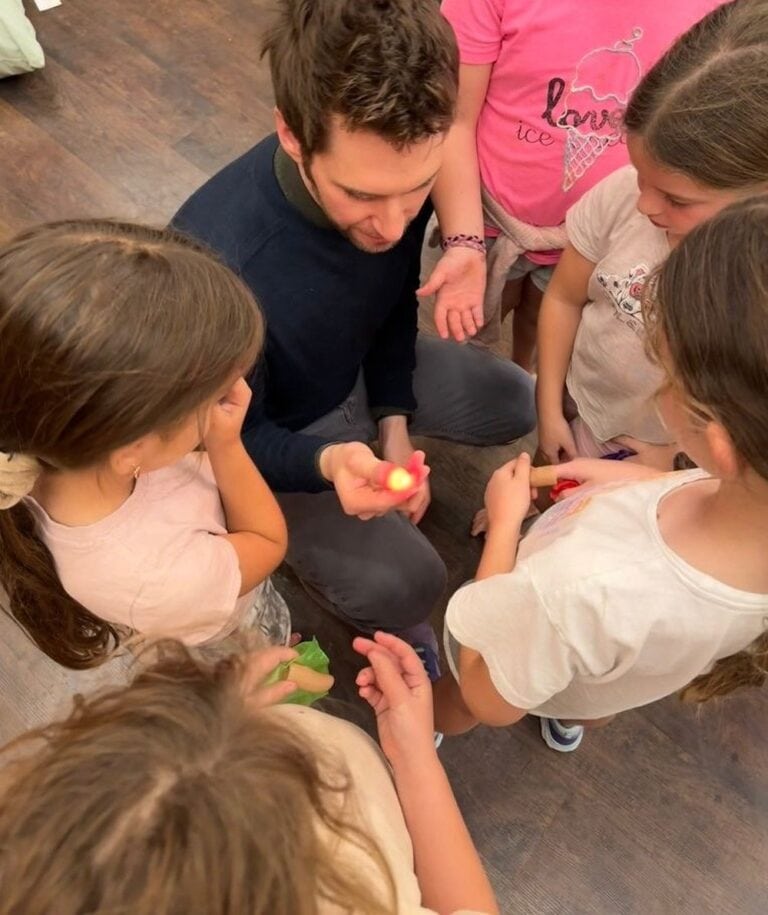
“I wanted to do something because I feel Israel is my home,” says Samson, who also works as a private chef specializing in tasting menus of modern Israeli cuisine. At the beginning of the war, he auctioned off dinners, raising $25,000 for Israeli emergency response organizations such as United Hatzalah and Magen David Adom.
“But I wanted to do more. Between 2011 and 2014, I ran a school of magic in Israel for disadvantaged Jewish and Arab children. I remembered the joy it brought to the kids and I felt it was something I could do, so I hopped on a plane.”
Beef Up Our Boys
At the start of the war, Beit Shemesh-based chef Etan Ogorek got a few calls from relatives of soldiers asking him for beef jerky – a dehydrated strip of spiced meat that provides a portable and shelf-stable high-protein snack – as an alternative to the canned tuna provided in IDF battle rations.
The project soon snowballed. One of Ogorek’s neighbors, A. Chaim Rutenberg, started covering the cost for local volunteers to make 1,000 pieces of beef jerky per day for soldiers and for ZAKA search-and-rescue volunteers.
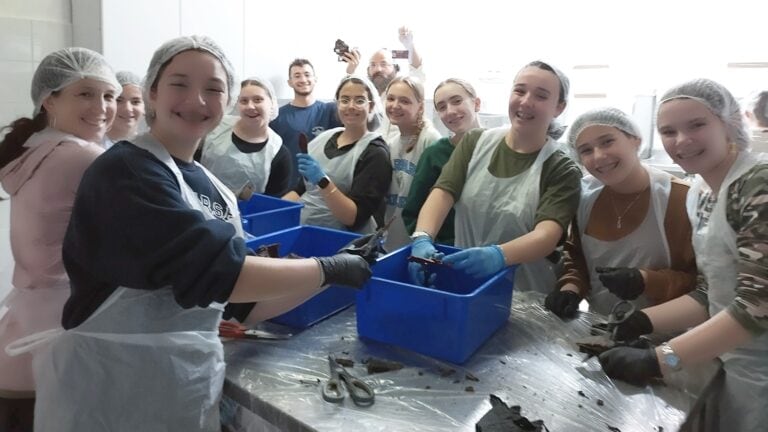
Eventually, project leaders raised funds to procure kosher beef, salmon and even portobello mushroom jerky (for vegans) in bulk from suppliers in the United States. Each week, about 140 local volunteers repackage the nourishing snacks individually, affix stickers with blessings and photos, and deliver them to IDF bases.
Rutenberg, a software QA engineer, is leading this effort full time.
“We are getting calls around the clock from soldiers saying, ‘You saved our lives, we really needed this.’ It’s not a ceramic helmet, but they need protein,” he says.
“My goal is for people to see that a regular person can make a difference. And when you join with others, it’s a multiplier effect.”




